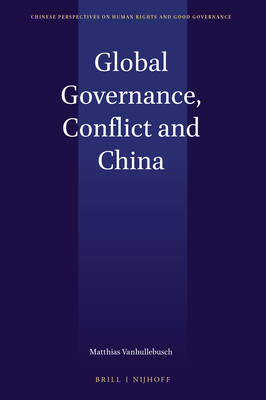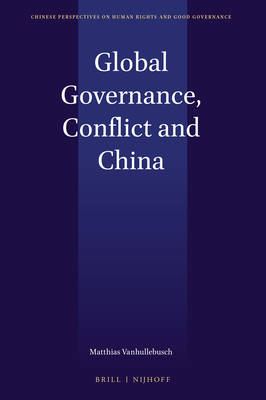
- Afhalen na 1 uur in een winkel met voorraad
- Gratis thuislevering in België vanaf € 30
- Ruim aanbod met 7 miljoen producten
- Afhalen na 1 uur in een winkel met voorraad
- Gratis thuislevering in België vanaf € 30
- Ruim aanbod met 7 miljoen producten
Zoeken
Omschrijving
Global Governance, Conflict and China sheds a unique perspective on China's normative behaviour in the realm of collective security, peacekeeping, arms control, the war on terror and post-conflict justice. This analysis engages with an Asian epistemological framework whose relational thought borrows from the context - space and time alike - that informs China's principle-driven conduct on the international plane. Through the lens of relational governance, this work develops a new theory on the relational normativity of international law (TORNIL) that identifies the interdependent sources that underpin China's international legal argument, i.e. norms, values and relationships. Without a fertile soil in which those conflicting relationships between share- and stakeholders can be rebuilt, international laws governing (post-conflict) violence cannot restore and maintain peace, humanity and accountability.
Specificaties
Betrokkenen
- Auteur(s):
- Uitgeverij:
Inhoud
- Aantal bladzijden:
- 476
- Taal:
- Engels
- Reeks:
- Reeksnummer:
- nr. 2
Eigenschappen
- Productcode (EAN):
- 9789004356467
- Verschijningsdatum:
- 11/01/2018
- Uitvoering:
- Hardcover
- Formaat:
- Genaaid
- Afmetingen:
- 160 mm x 239 mm
- Gewicht:
- 816 g

Alleen bij Standaard Boekhandel
+ 616 punten op je klantenkaart van Standaard Boekhandel
Beoordelingen
We publiceren alleen reviews die voldoen aan de voorwaarden voor reviews. Bekijk onze voorwaarden voor reviews.








